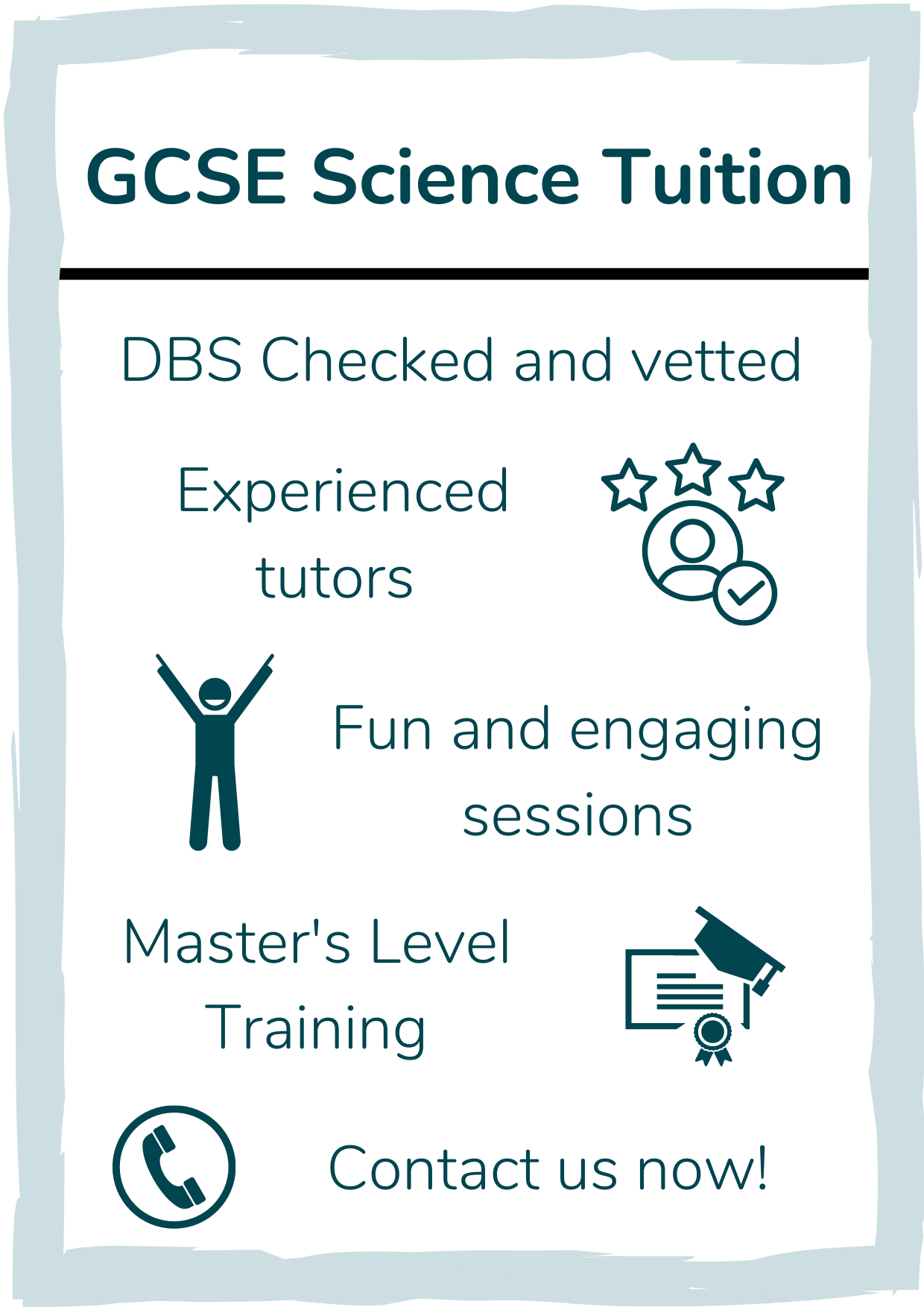Helping young students succeed in Science
Online GCSE Science Tutoring
Why Study Science With Discover Tutoring
Science is the foundation of modern technology and we all underestimate its influence on our day-to-day lives. Without science, we wouldn’t have cars, we wouldn’t have laptops or smartphones. Without science, we wouldn’t even have fridges or washing machines. All of these innovations were based on hundreds of years of research into physics and chemistry. If a student says “why should I study science?” it indicates a failure of teachers and schools to explain the purpose of going to school. Students should be taught to be inquisitive about the world around them and ask questions that nobody asks. Young children do this regularly. They might ask things like “why is the sky blue?” or “why is the sea salty but lakes and rivers aren’t?”. These are the kinds of questions that are asked by someone who is curious about the world around them.
Here at Discover Tutoring, we continue to ask these questions. We stoke the fire of imagination inside students and inspire them to learn about the world. Whether or not a student is interested in science, it is possible to engage them.
Contact Us
There are questions that once asked cannot be left alone. For example, “why is there wind?”.
A question that nobody ever asks can lead to the most fascinating discussion which can help students to understand topics such as energy systems, climate science, astronomy and the periodic table of elements to mention but a few. Science is full of examples of exciting and wondrous phenomena and when studying, students should have the same experience. After all, students who are driven by curiosity, are engaged and ready to learn, inevitably perform the best.
If you want to learn more about our tutoring approach and why we believe it is the best strategy, contact us on the form above. You should also consider trying one of our GCSE Science quizzes! Why not also take a look at our blog post on work done in physics or look through our video resources?
If you’re also looking for Maths tuition, you can read about it on our Maths page.

Our Strategy for GCSE Science Tutoring
We use a flexible strategy towards GCSE Science Tuition where we first talk to the student and parent and experiment with different approaches to see how students respond best.
We then figure out the most productive and valuable strategy for both learning and enjoyment for each and every student. Our goal is to engage students so that they enjoy our sessions and look forward to them. Any student can enjoy science, but the classroom experience is often not fun.
By maintaining a back-and-forth conversational style to learning and teaching we can keep students engaged and awake! We challenge students to repeat and explain what they have learned and if they get a question wrong we challenge their reasoning.
Zoom in on a Student’s Thinking!
A key strategy of ours is to ask a student to explain their logic, and how did they arrive at the wrong answer or even the right answer. This tells us about the student’s way of thinking and points out where they might just be guessing. Students will not get away with guessing answers and coasting along in our sessions.
It can be a habit built over hours and hours in the classroom to simply sit there and daydream. When occasionally asked a question they will simply guess and the teacher will not have time to assess what’s going wrong. We have the time and we will break that habit. In our sessions, students pay attention and they build a better system of understanding information.
We find that students are able to use logic and clear thinking on occasion to arrive at answers. When we spot this we encourage it and demonstrate why it is so important. This brings us to one of our most critical approaches to tuition, encouraging 1st principles thinking.
1st Principles Thinking as an Approach to GCSE Science Tuition
Our approach to teaching GCSE science, as well as GCSE maths, is to use 1st Principles Thinking.
The idea is to drill down to the most fundamental fact that the student understands and work forwards from that towards an understanding of the answer to the question. We will demonstrate this thinking below:
Imagine the following scenario: We ask a student “why do muscle cells have lots of mitochondria?”
To help you along here, mitochondria are the parts of cells that produce energy allowing movement.
The student would often guess and arrive at an incorrect answer, even if they know what mitochondria are. We can use this as a demonstration of 1st Principles Thinking. We explain the concept of 1st Principles Thinking and use this as an example.
We would say “so let’s go back a step and ask some more basic questions which will help us to understand a bit more”.
Then we could ask a series of more basic questions to find where students do understand the question at a deeper level. Questions like “What are muscles for?” and “How do muscles move?” will usually bring students to the concept of energy. We need energy to move our bodies and the muscles facilitate that.
Then we can say “well where does energy come from in the body?” and again the student might not know the answer so you can go back a step further in the chain of understanding. “ok then, what do humans need to survive?” we could ask. This is the real key and we are arriving at the 1st Principle. The most basic concept which underpins human survival – respiration.
The student might then say “oh we need food” and we say what else do we need and they’ll say “we need to breathe”. “why do we need to breathe?” we could say, again going further down the chain and then they would say “oxygen, we need oxygen”. We would do the same with food, and they would get to the point of we need food for energy.
You can continue on this train for a while longer but typically students begin to make the connection and by asking these questions we have uncovered lots of information we need to answer the question. So we can now point back to the question and say “well how does all of this apply to mitochondria?” 9/10 times the student says the right answer or some very close explanation – we need more mitochondria to produce more energy so we can move.
They Already Know the Answer!
This is not an ongoing occurrence since it is quite time-consuming to do, but what we want is for students to begin thinking in this way when they get stuck. This is the alternative to guessing and it is incredibly valuable. If students can take this approach to their exams they can boost their grades enormously, by unlocking all of the knowledge they have learned.
The reason this approach to thinking works so well is that they have spent 10 years learning science already. They have already built a basic scientific understanding of the world and they just need to connect the dots. Guessing is a crutch and we want to take it away and make them stand upright!
If you want to learn more about our approaches to learning, you could check out our homepage where we discuss another approach – Inquiry-Based Learning. This concept was briefly mentioned earlier on this page as a conversational style of teaching.
